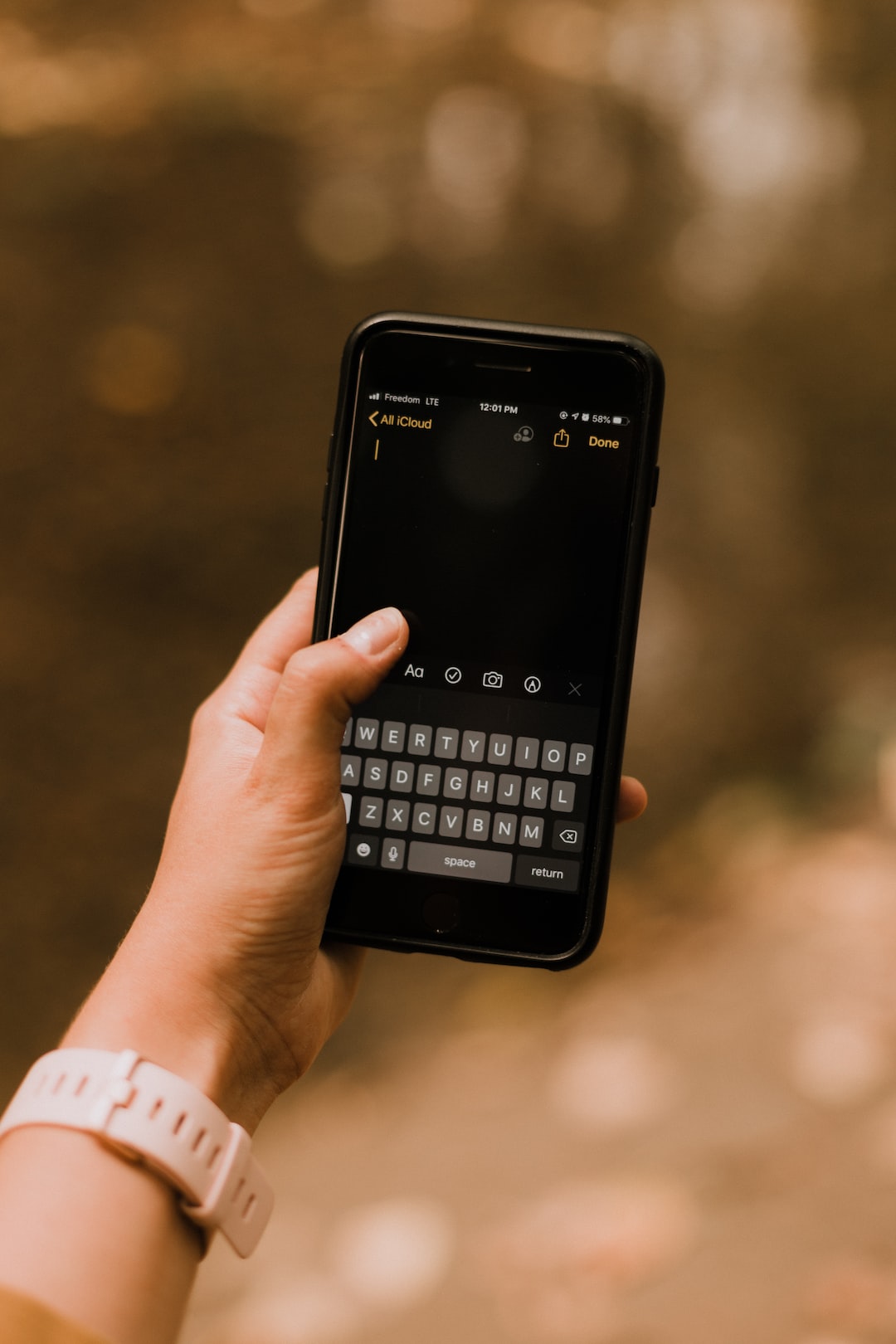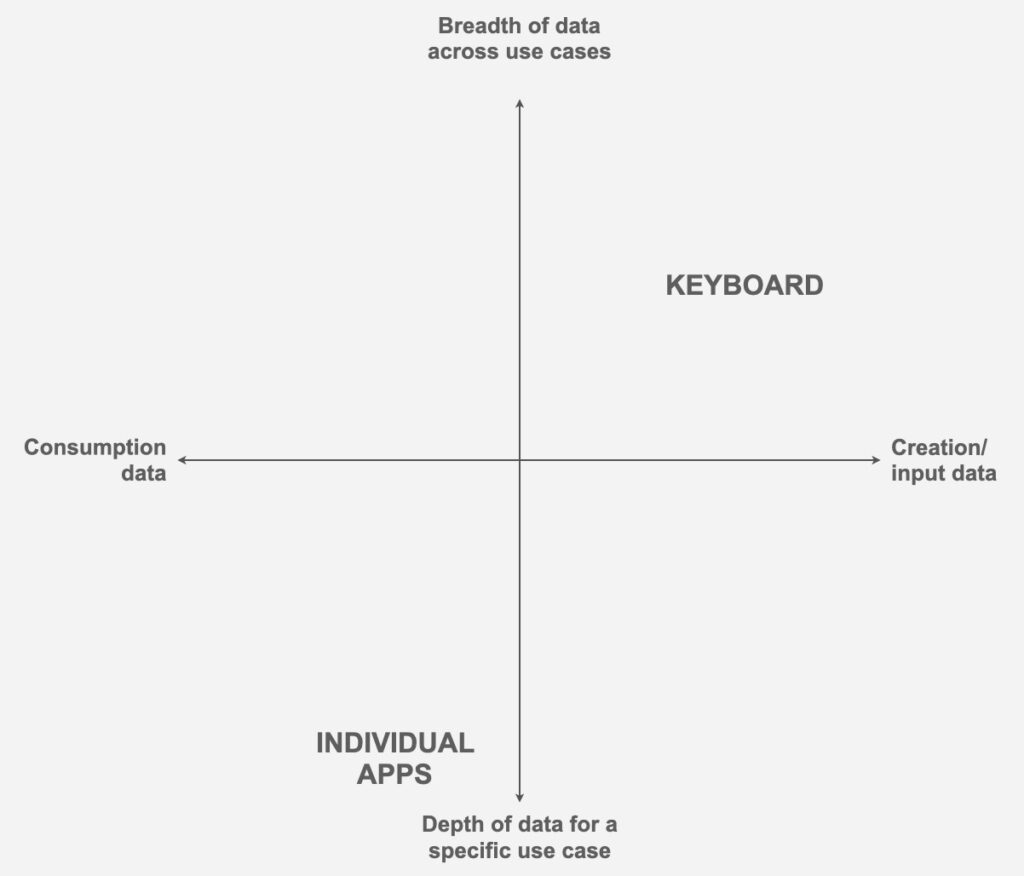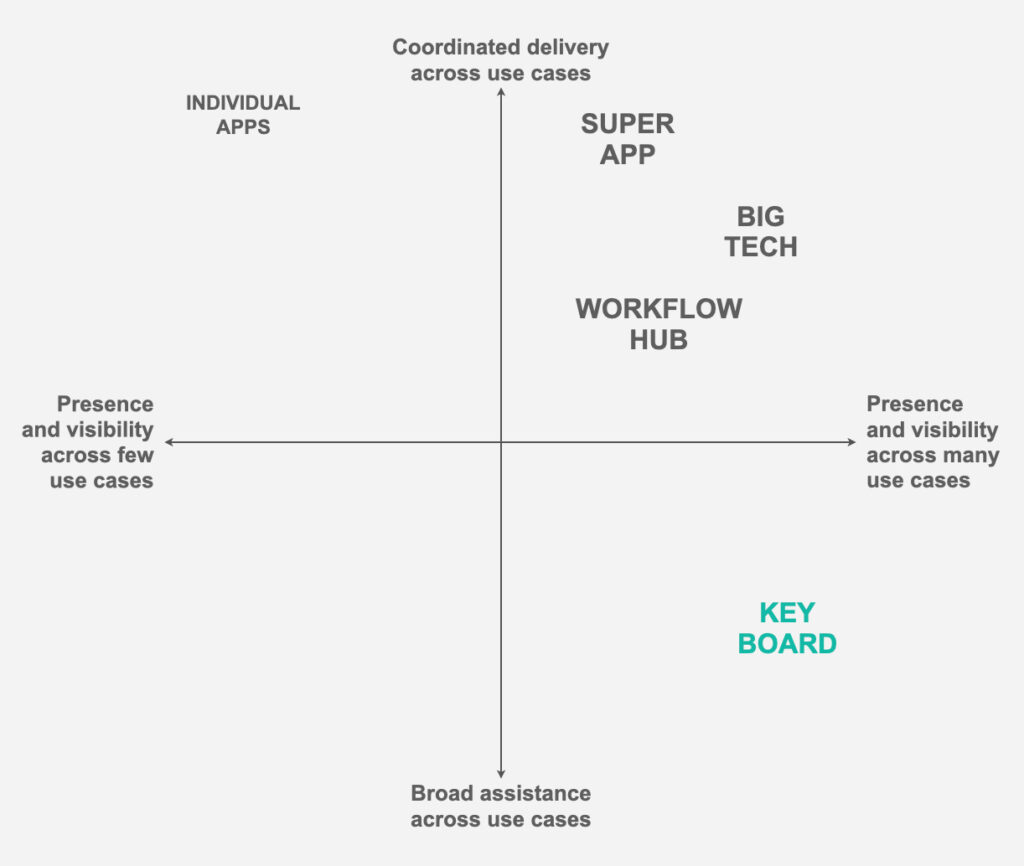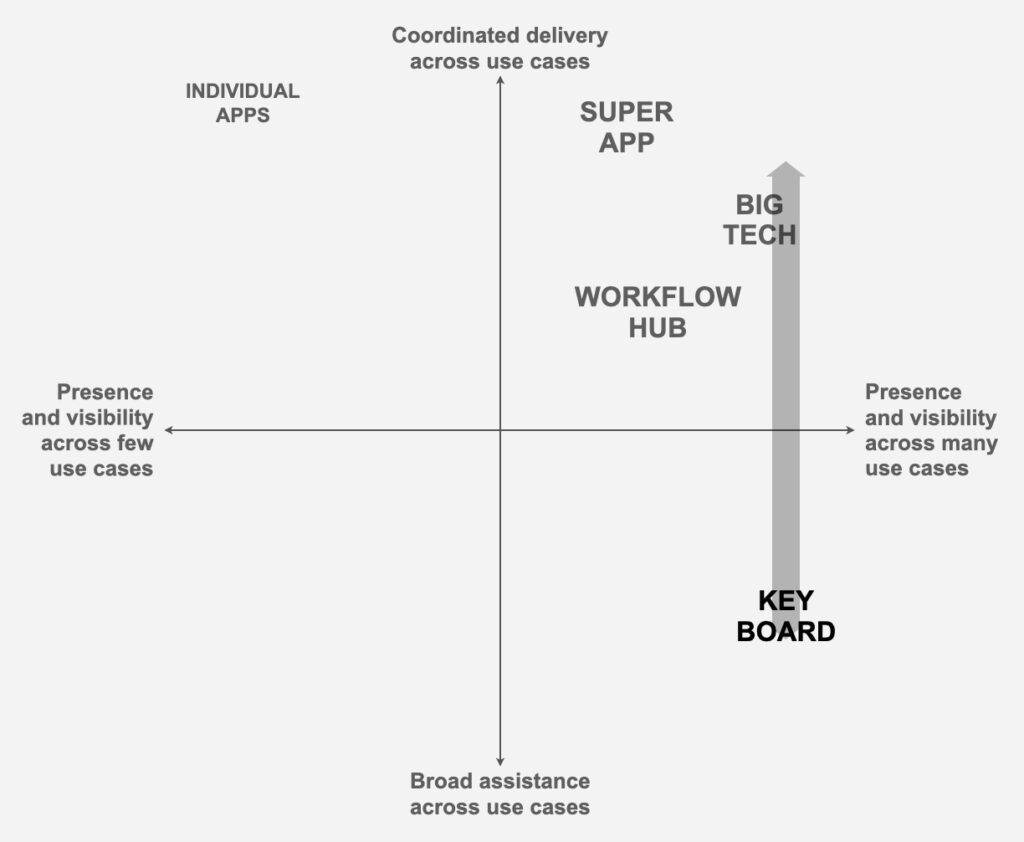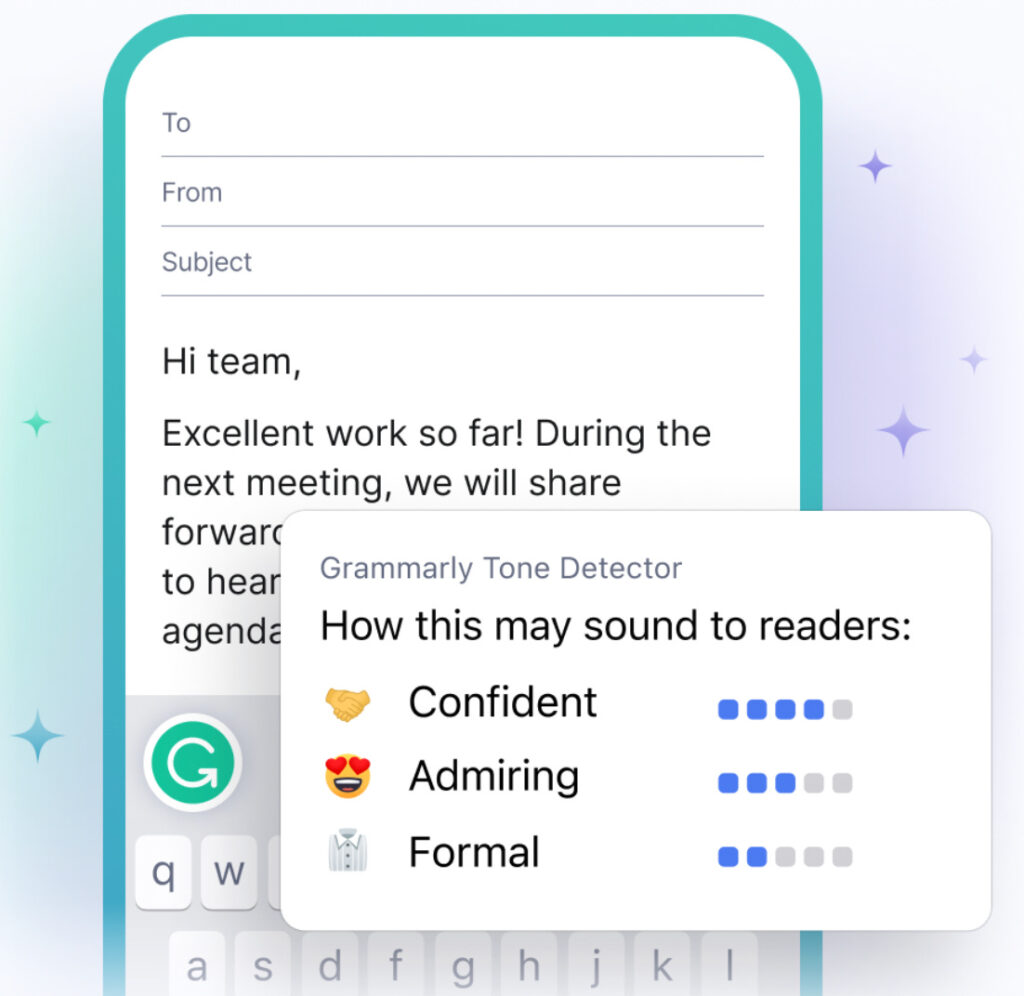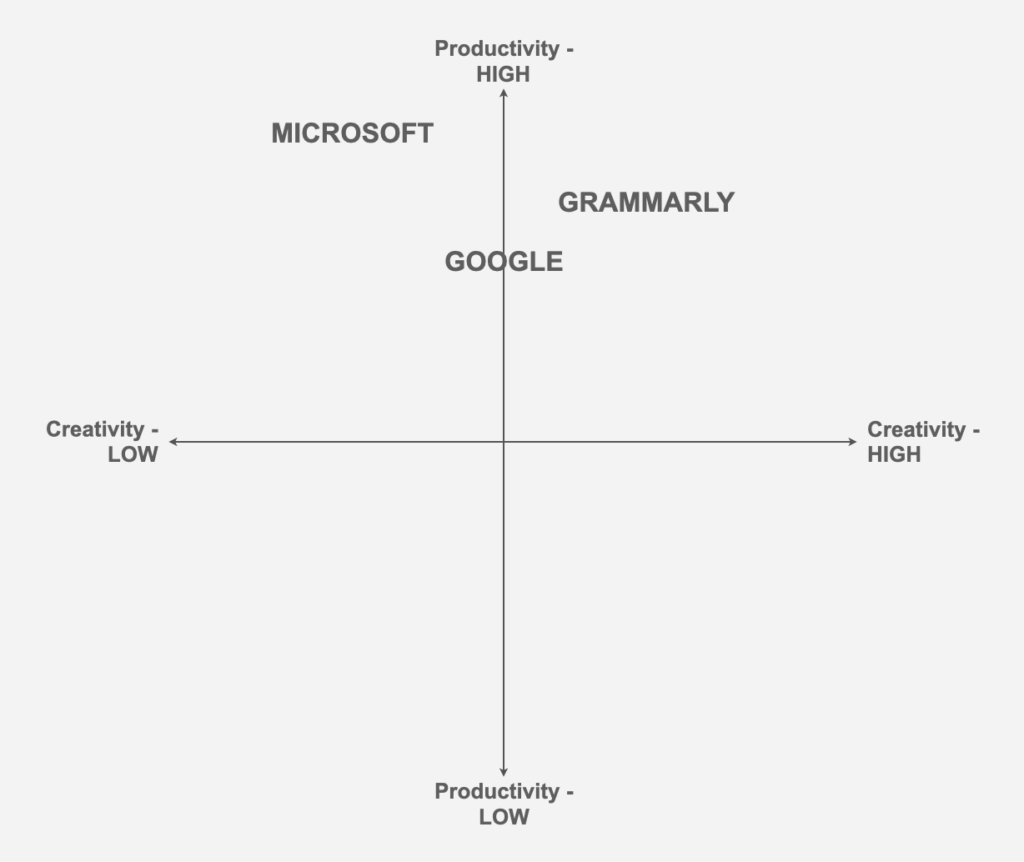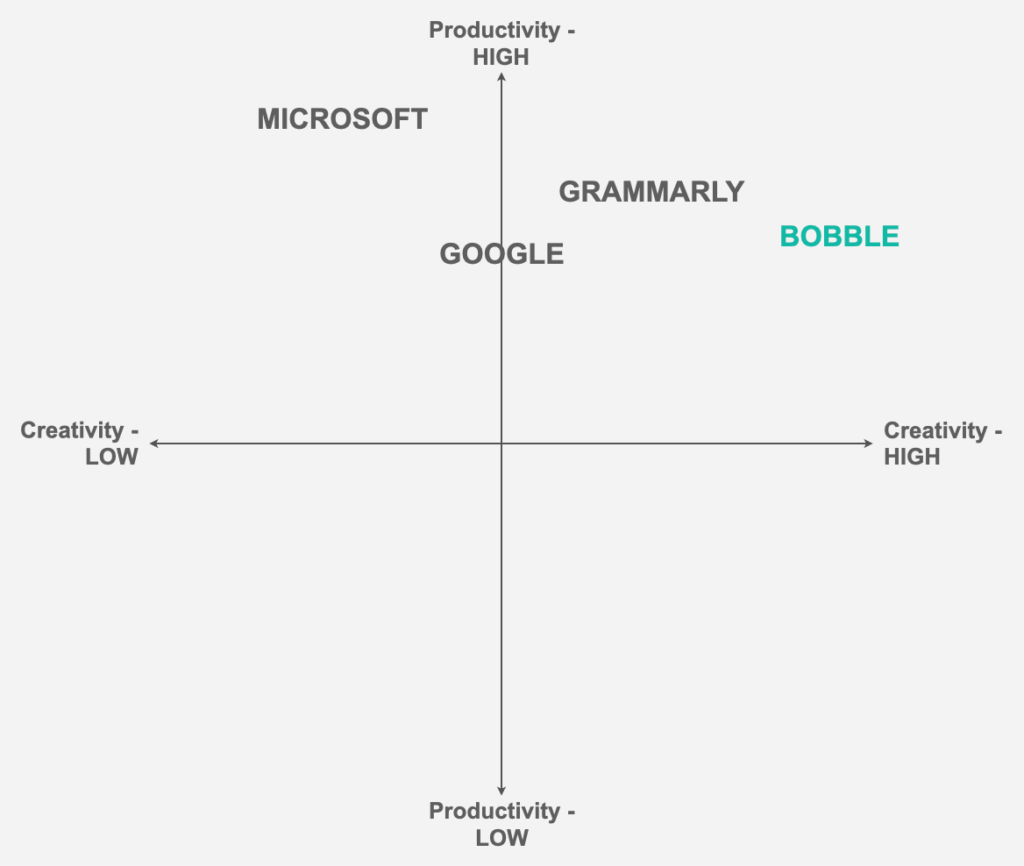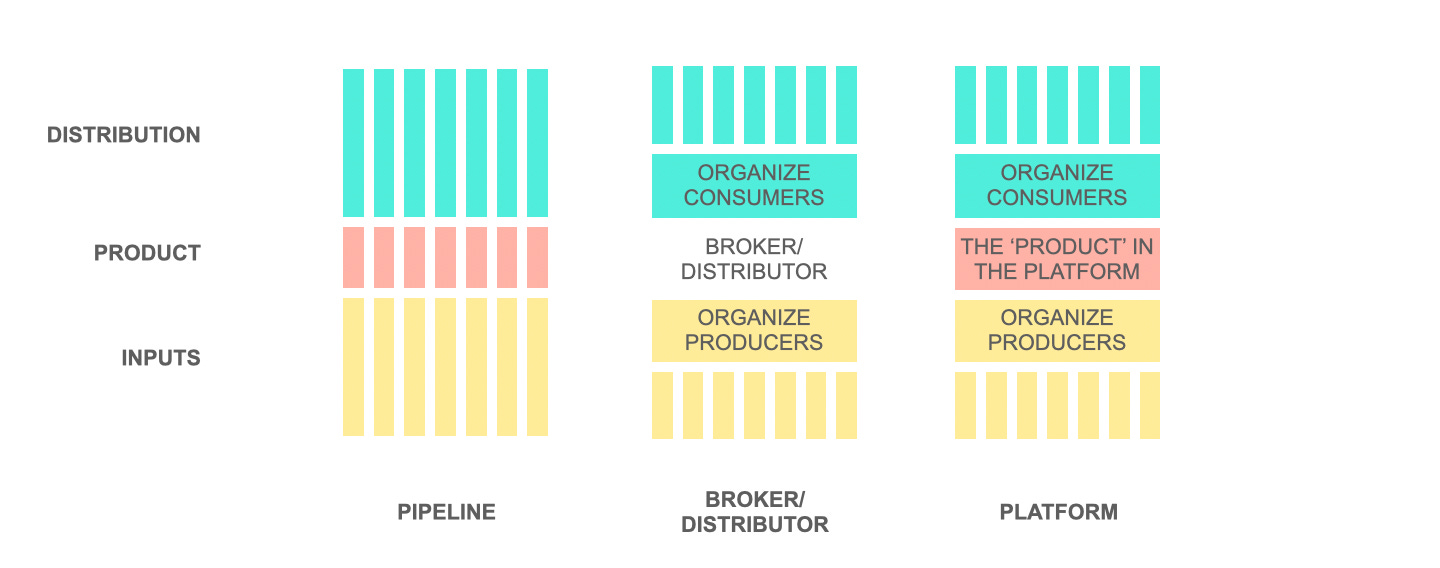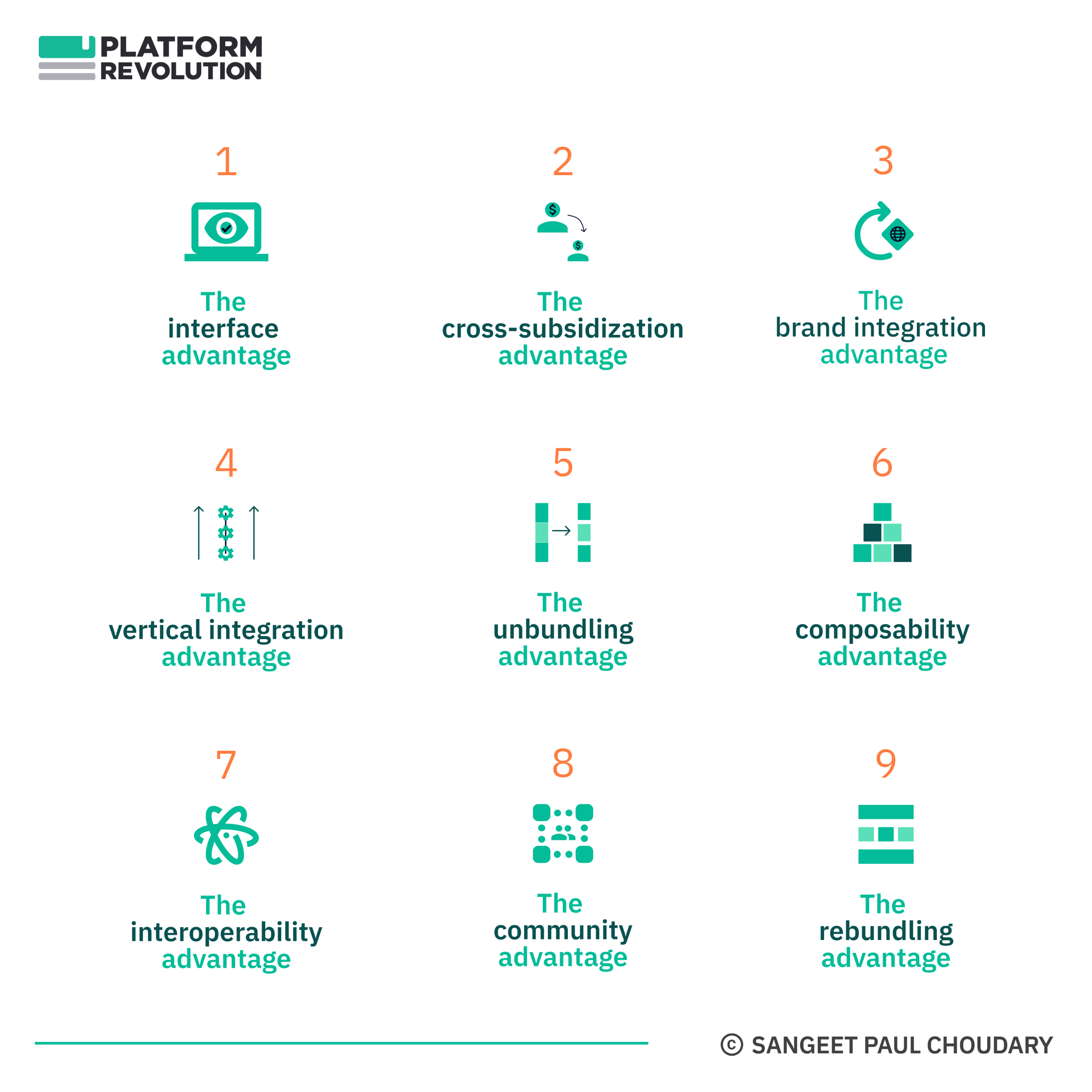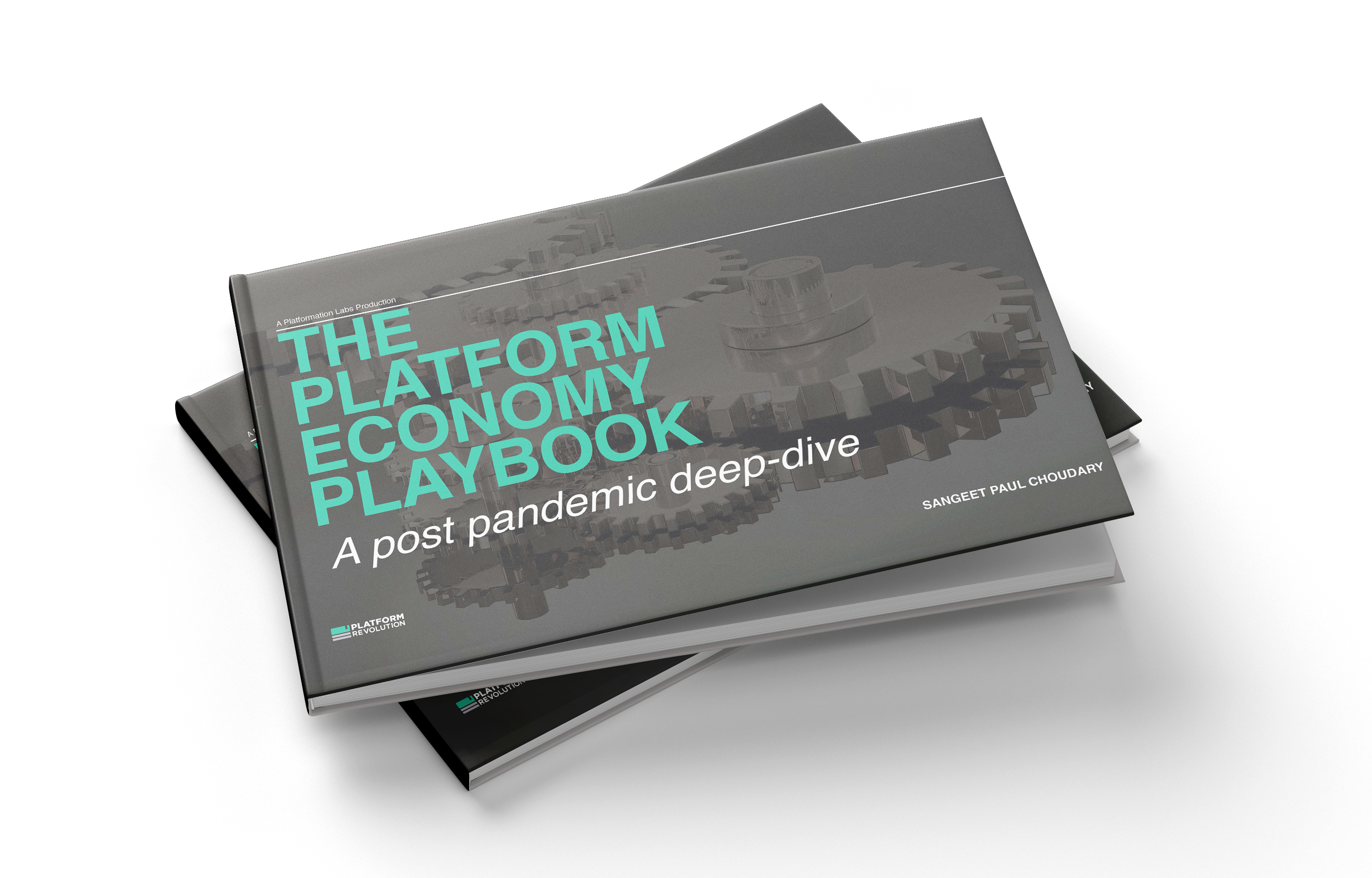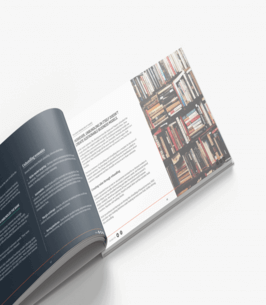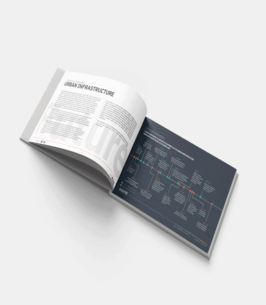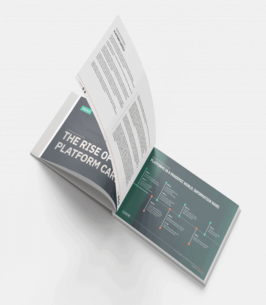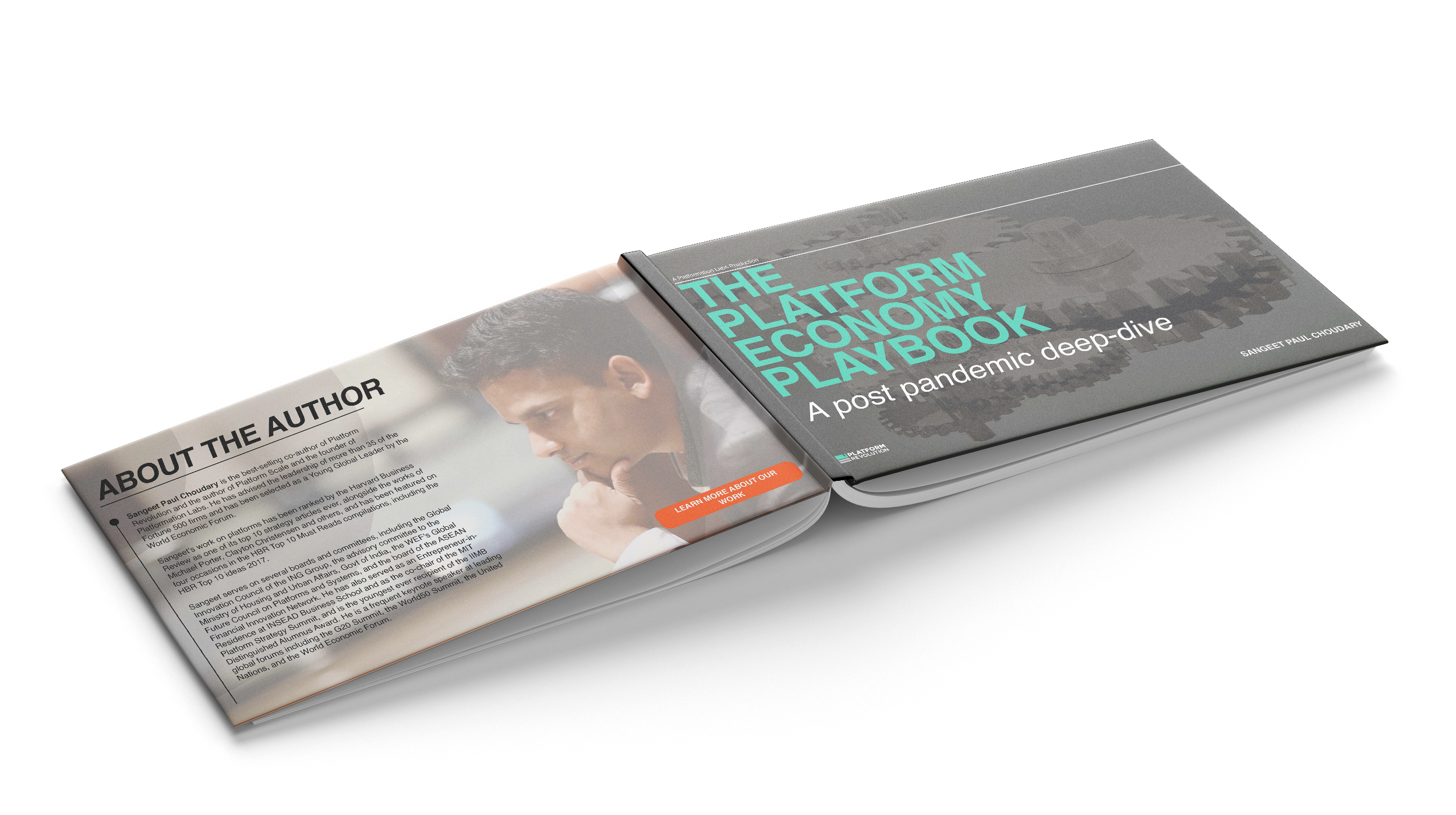Strategy
Keyboard-as-a-platform
The untold story of the most under-used real estate on the phone screen
A well-crafted AI assistant bundled into the keyboard can also help the keyboard move up the value chain from broad uncoordinated assistance to coordinated delivery of use cases.
Feel Free to Share
Download
Our Insights Pack!
- Get more insights into how companies apply platform strategies
- Get early access to implementation criteria
- Get the latest on macro trends and practical frameworks
Winning the keyboard war
With different players taking on different positions, how do you win the keyboard war?
There are four levels at which you need to build competitive advantage in order to win the keyboard war:
- Awareness
- Performance
- Amplification
- Intelligence
Awareness
Arguably, the greatest challenge for anyone entering the keyboard war arena is customer awareness. Most mobile users don’t even realize that they can change the default keyboard on their phone and replace it with one of the keyboards above.
With 30 million active users, Bobble has likely surmounted the initial hurdle but awareness remains critical to expanding and winning the market.
Performance
Unlike most apps which retain users through personalization on the core use case, the right to win with a keyboard is first developed through basic performance of the keyboard. Most mobile users view the keyboard as a core utility rather than a tool for creative expression or an intelligent co-pilot to get things done.
To win with the keyboard, players will need to ensure that they deliver performance and reliability on the core keyboard usage experience. This is particularly important when the most dominant substitutes to your keyboard business – Microsoft and Google – are well-positioned technically. Bobble, again, is well positioned to play here with more than 7 years of keyboard technology development.
Amplification
Beyond basic performance, keyboard usage varies with user persona. Those who use it primarily to chat on Whatsapp and create content for TikTok need a different set of functionality compared to those who use it primarily to respond to emails and manage their calendar meetings.
This variance in usage creates a valuable differentiation and monetization opportunity. While the basic keyboard should deliver performance at a free tier, a premium version of the keyboard could bundle in capabilities that appeal specifically to a user persona’s unique needs. This may include providing AI assistance to a business user vs providing access to a creative library of emoticons to a user largely interested in chatting. These bundles – which amplify your keyboard capabilities – can also be monetized differently.
Essentially, the keyboard is a horizontal capability but its usage patterns are vertical (persona-specific). This verticalization presents an important differentiation and monetization opportunity.
Intelligence
Finally, winning the keyboard war requires greater intelligence and personalization over time. The more a user uses the keyboard, the more useful it should become at addressing their specific needs.
Keyboard flywheels
A keyboard that can differentiate itself beyond basic performance as a locus of amplification and intelligence is well positioned to win the keyboard war.
But in order to get there, we first need to solve the awareness problem mentioned above. How do we acquire users to the keyboard at scale?
Bobble has an elegant solution here that has already worked at scale:
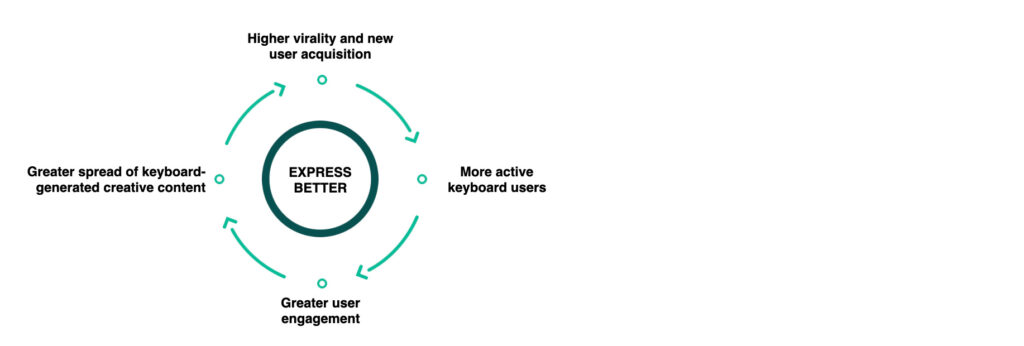
As more users use the Bobble keyboard, they amplify Bobble-generated content across their network. This drives a viral effect and attracts more users to the keyboard who come on board intrigued by the interesting content. When a user first sees a unique Bobble-generated sticker shared by a friend on Whatsapp, they get intrigued and some download the keyboard to try it for themselves.
This is, in turn, bolstered by another feedback loop that constantly improves amplification and intelligence:
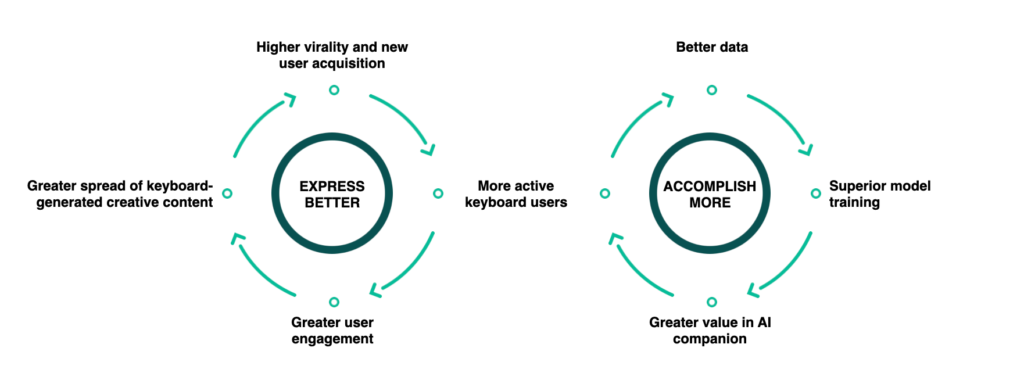
As users start using the keyboard, they gain value through the AI companion on the keyboard. The more they use the keyboard, the better they train this companion.
Keyboards that rely entirely on productivity lack the viral acquisition power that comes through the content/expression loop. And keyboards that do not embed intelligence lack the growing value of a constantly improving AI companion.
Interested in the keyboard-as-a-platform?
As I mentioned upfront, this analysis is a sponsored post by Bobble.
I believe the story of the keyboard as a vector for competitive advantage on the smartphone is one that is often ignored. The story deserves to be told on its merit alone.
As for Bobble, this combination of a viral acquisition loop combined with a learning loop positions Bobble uniquely well to win the keyboard war.
State of the Platform Revolution
The State of the Platform Revolution report covers the key themes in the platform economy in the aftermath of the Covid-19 pandemic.
This annual report, based on Sangeet’s international best-selling book Platform Revolution, highlights the key themes shaping the future of value creation and power structures in the platform economy.
Themes covered in this report have been presented at multiple Fortune 500 board meetings, C-level conclaves, international summits, and policy roundtables.
Subscribe to Our Newsletter



